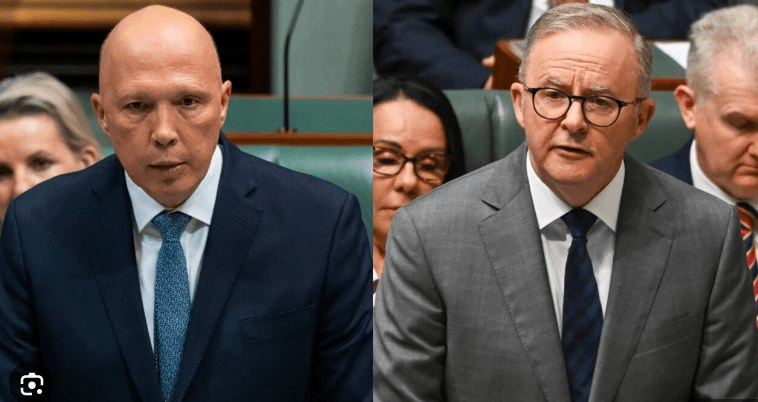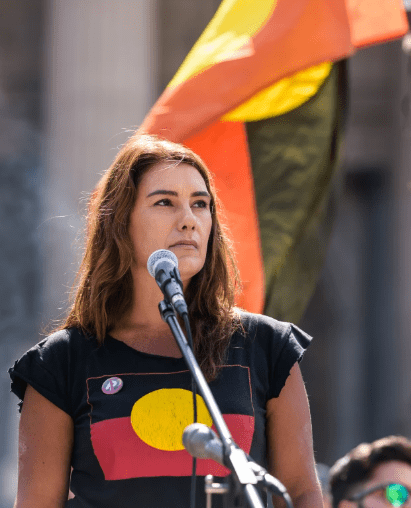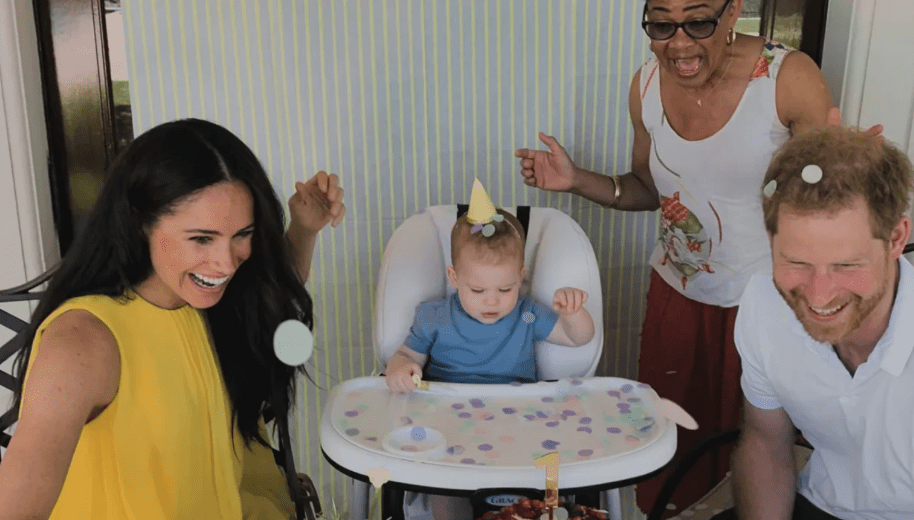The Australian Labor Party would secure only 29% of the primary vote if a federal election were held today, new data shows.
This marks the lowest percentage of Australians choosing Labor as their first preference in any federal election since the country’s inception in 1901, according to political polling results from YouGov.
In comparison to YouGov’s November poll, the latest figures show a 2% decline in Labor’s primary vote, bringing it to 29%, while the Coalition is up by 1% at 37%. The Greens have seen a 2% increase, reaching 15%, and One Nation remains steady at 7%.

Despite the dip in the primary vote, Labor still maintains a narrow lead on the two-party preferred vote, standing at 51-49 after preferences are distributed.
Anthony Albanese continues to lead as the preferred Prime Minister with 46%, surpassing Peter Dutton at 36% by a margin of 10 percentage points. This represents a slight decrease from the 14-point lead observed in the November poll.
Paul Smith, YouGov’s Director of Government and Social, commented on the findings, stating that while fewer people would currently choose Labor as their first choice, the party would likely still form a government due to a preference for Albanese over Dutton.
It comes as Labor was recently called out for hypocrisy after voting against enshrining Independent Senator Lidia Thorpe’s Private Members Bill, the United Nations Declaration on the Rights of Indigenous Peoples (UNDRIP), into law.

The UNDRIP Bill, introduced to Parliament in March 2022, seeks to establish the minimum standard of First Peoples’ rights, emphasising the principles of Self-determination, Free, Prior and Informed Consent, and the right to maintain and practice culture.
Its overarching aim is to safeguard the survival, dignity, and well-being of Indigenous peoples.
Senator Lidia Thorpe, a Gunnai Gunditjmara and Djab Wurrung woman representing the Blak Sovereign Movement, pointed out Labor’s hypocrisy after the government spent several months campaigning for a Voice Referendum.
“The Albanese government claimed they cared about First Peoples rights and justice when they went ahead with the Voice referendum. Yet after the failed referendum, they can’t even bring themselves to support the minimum standards of our rights being adhered to in this country,” Senator Thorpe said.
“Today our people have yet again been let down by a colonial government, even when we’re putting the solutions right in front of them. Once again our value as people and as First Peoples of these lands is being diminished.”
However, the political leaders found some common ground in the government’s Closing Loopholes bill. Workplace Relations Minister, Tony Burke, along with Independent Senators David Pocock and Jacqui Lambie, reached an unexpected agreement on Thursday leading to the bill being split in two.
Key elements of the new legislation include:
- Closing the labour hire loophole
- Criminalizing intentional wage theft
- Introducing a new criminal offense of industrial manslaughter
- Enhancing support for first responders with PTSD
- Protecting workers from discrimination at work due to family and domestic violence
- Expanding the functions of the Asbestos Safety and Eradication Agency to include silica
- Closing the loophole allowing large businesses to claim small business exemptions during insolvency to avoid redundancy payments
Senator Thorpe expressed her support for the government’s efforts. She has been working with Minister Burke in recent months and welcomes the crucial reforms set to be voted on before the parliamentary year concludes.
“My thoughts are with all those who have lost loved ones due to unsafe workplaces and the lack of care by businesses out to make a quick buck,” she said.
“I hope this bill can bring them some peace in knowing that hopefully others will not have to go through the same hell as they did.”

